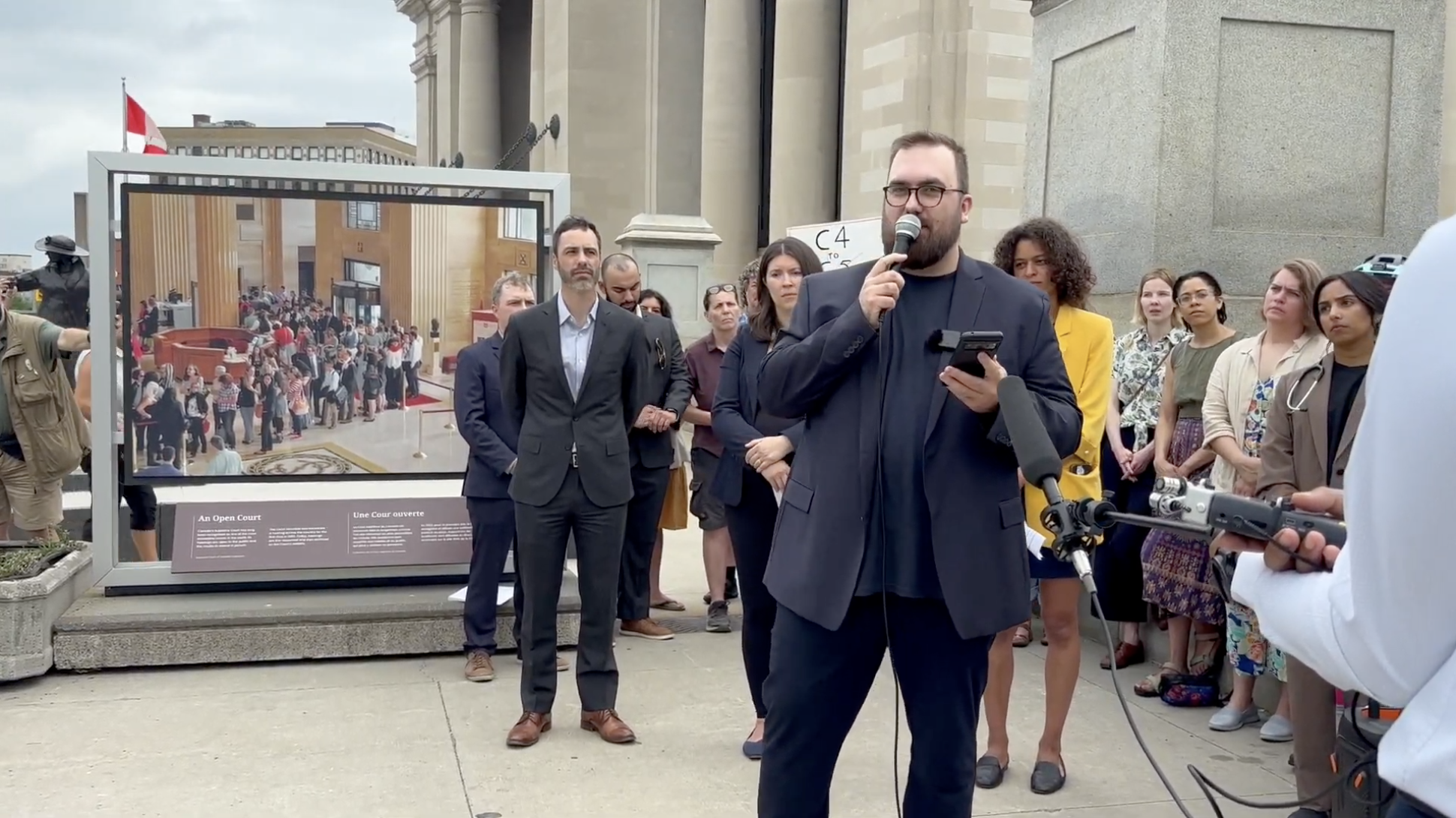Ottawa, Canada, 23 April 2024 – A global treaty that cuts plastic production and ends single-use plastic pollution is still within reach and governments have a duty to do all they can to secure it, said Greenpeace International and The Descendants Project at a press conference today. Campaigners and activists from impacted communities said Member States must ensure the fourth Intergovernmental Negotiating Committee (INC-4) meeting in Ottawa this week secures an ambitious Global Plastics Treaty that reduces plastic production and ends single-use plastics.
Greenpeace International demands that at INC-4 Member States:
- Ensure that an option for a global target to reduce primary plastic polymer production is retained in the text. There is a risk that as we begin serious negotiations on text that ambitious countries will concede to bad-faith countries in this area.
- Ensure that targets for reduction, reuse, and refill are retained as an option in the text.
- Given the slow progress so far, Member States must move into actual negotiation of the treaty text. A first step will be states working to consolidate the many options in the revised Zero Draft, and we are expecting states to submit in-session documents like conference room papers (CRPs) with concrete proposals.
- Ensure that there is a mandate to create the first draft of the treaty text, which was one of the failures of INC-3 held last November 2023 in Nairobi, Kenya.
Highlighting the role of Canada as the host country for this round of talks, Sarah King, Head of Oceans and Plastics Campaigns for Greenpeace Canada, said:
“As host country, Canada can show leadership by setting the right tone for the talks ahead and working with other high ambition countries to champion the strongest possible measures. Public calls for bold action are getting louder, and this is Canada’s moment to heed those calls and help move us towards the impactful Plastics Treaty outcome people and the planet desperately need.”
Jo Banner of The Descendants Project, said:
“As a resident of Louisiana’s Cancer Alley, I experience first-hand the devastating impact plastic production has on the health and environment of Frontline communities. A treaty failing to limit plastic production is a continuation of our country’s deadly tradition, which harkens back to the days of the enslavement of my ancestors, of enriching others through the sacrificing of Black bodies, other people of color, and low-income communities.”
Earlier this month, a Greenpeace International poll report revealed that 8 out of 10 people support cutting plastic production. The survey which was conducted across 19 countries also indicates overwhelming public backing for measures aimed at ending single-use plastics and promoting reuse-based solutions.
Marian Ledesma, Zero Waste Campaigner for Greenpeace Southeast Asia – Philippines, said:
“People want a livable planet free of plastic pollution—and that’s what the Global Plastics treaty needs to deliver. As plastic production rises, the impacts across the plastic lifecycle on our health, environment, and climate intensify, disproportionately affecting the most vulnerable groups and the Global South. Our recent Greenpeace International poll shows that people—particularly in the Philippines and Global South—recognize what’s at stake. To maintain a livable planet and an equitable future for all, the treaty must cut plastic production by 75% by 2040 and transition to a reuse-based economy.”
ENDS
Notes:
Greenpeace demands for a Global Plastics Treaty can be found here.
Photos and videos are available from the Greenpeace Media Library.
Contacts:
Angelica Carballo Pago, Global Plastics Campaign Media Lead, Greenpeace USA, [email protected] , +63 917 1124492 (in Ottawa, Canada)
Laura Bergamo, Head of Media, Greenpeace Canada, [email protected] , +1 438 928-5237 (in Ottawa, Canada)
Greenpeace International Press Desk, +31 (0)20 718 2470 (available 24 hours), [email protected]
Follow @greenpeacepress on Twitter for our latest international press releases



